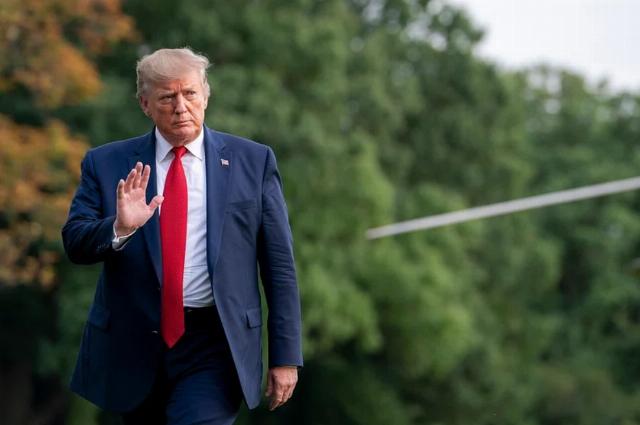Trump and the Public Trust
Under the Biden administration, a growing number of agency actions appear to have been influenced by political considerations alongside their legal basis. Although the rule of law permits executive agencies to interpret and enforce their enabling legislation, public trust depends on ensuring that enforcement is even-handed, transparent, and grounded in legal norms rather than ideological preferences.
This blurring of legal and political motives can compromise the legitimacy of enforcement efforts and erode confidence in legitimate regulatory actions. It can also create obstacles that disproportionately burden small businesses, which typically lack the resources to counter them. The Trump administration started on day one of its return to Washington to lay a strong foundation to ensure that federal agencies no longer operate as tools of political messaging. Now it is time to build upon that foundation and follow through with decisive action.
Several high-profile examples offer cautionary lessons and opportunities for reform.
In March of 2024, for example, the Securities and Exchange Commission (SEC) adopted a climate disclosure rule that pushed far beyond the agency’s traditional securities mandate. Framed as an investor protection measure, the rule marked a notable expansion of the SEC’s mandate into climate policy — an area traditionally governed by environmental regulators and Congress. Even SEC commissioner Mark Uyeda, a Biden appointee, warned that the rule was “deeply flawed and could inflict significant harm on the capital markets and our economy.” By embedding climate policy into securities law, the SEC risked transforming financial disclosure into a vehicle for ideological advocacy and blurred the line between rulemaking and activism, sowing confusion among public companies and investors alike.
A similar pattern emerged several months later with the Committee on Foreign Investment in the United States (CFIUS)’s review of the proposed Nippon Steel–U.S. Steel merger. Historically, CFIUS has operated as a largely apolitical body, focused exclusively on evaluating foreign investments primarily on the basis of national security risks. Yet before the committee could complete its review, President Biden publicly opposed the deal on economic and labor grounds that are typically outside CFIUS’s statutory remit. The timing — occurring just months before a presidential election and amid strong union lobbying against the deal — fueled concerns that a process intended to be a fact-based national security determination had been compromised for electoral gain. The consequences were clear: uncertainty for the companies involved and broader doubts among foreign investors about the reliability of U.S. regulatory institutions.
This pattern of politicized enforcement, however, may be most evident in the Federal Trade Commission (FTC)’s lawsuit against Kochava, Inc.
The FTC has accused the small Idaho-based data broker of selling location data that could identify visits to sensitive sites like abortion facilities. Although the FTC claimed that this poses a risk of consumer harm, the complaint cited no actual misuse of the data — only hypothetical scenarios. Kochava even offered to modify its data practices and collaborate with regulators, but the FTC offered no clear guidance for compliance and disregarded efforts at good-faith resolution, choosing to litigate instead. In contrast, Kochava has worked constructively with European regulators under the General Data Protection Regulation (GDPR) to make similar changes without the need for punitive measures.
The timing of the lawsuit, following the Supreme Court’s decision in Dobbs v. Jackson Women’s Health Organization, has raised concerns that the case was driven more by political signaling that the Biden administration was protecting pro-choice freedoms rather than legal merit. This is a troubling development that not only undermines the legitimacy of the enforcement process, but also signals to businesses that cooperation is futile and compliance is a moving target depending on political alignment and needs.
These trends — politicized merger reviews, ideological rulemaking, and adversarial enforcement — share a common thread: the erosion of due process and statutory boundaries in favor of short-term political gain. Small businesses, startups, and individual entrepreneurs often bear the brunt of such instability, lacking the legal and financial resources to navigate shifting regulatory winds. And when federal agencies fail to provide clear, predictable guidance, compliance becomes a guessing game.
The Trump administration is rightfully taking steps to reverse this systemic pattern. The day he took office, President Trump issued an executive order explicitly condemning the prior administration’s “systemic campaign against its perceived political foes, weaponizing the legal authority of numerous Federal law enforcement agencies.” The order called for the immediate termination of this misuse of federal power and outlined a process “to ensure accountability of the previous administration’s weaponization of the federal government against the American people.”
Within this context, the Trump administration’s decisions to effectively reverse the overreach of the SEC and CFIUS by withdrawing defense of the SEC climate risk disclosure rule and ordering a new review of the Nippon Steel–U.S. Steel merger are welcome developments. Trump’s people should now further illustrate their commitment to depoliticize federal enforcement by righting the wrongs of the Kochava case.
Actions such as these are more than mere procedural corrections; they are signals of intent. Restoring public trust demands a sustained commitment to transparency, statutory fidelity, and institutional neutrality. Where agencies have overstepped or politicized their mandates, enforcement priorities must be recalibrated. The law must once again mean what it says — and be applied evenly to all.
Charles Meyer is a frequent legal commentator on administrative agency enforcement matters, often suggesting reforms to regulations, laws, and enforcement mechanisms that would reduce unnecessary burdens on businesses small and large. He is a member of the Maryland, Ohio, and Texas Bars, a registered patent attorney, and a certified information privacy professional. He is the principal attorney at the Law Firm of Chuck Meyer, PLLC, in The Woodlands, Texas.

Image via Raw Pixel.





Comments are closed.